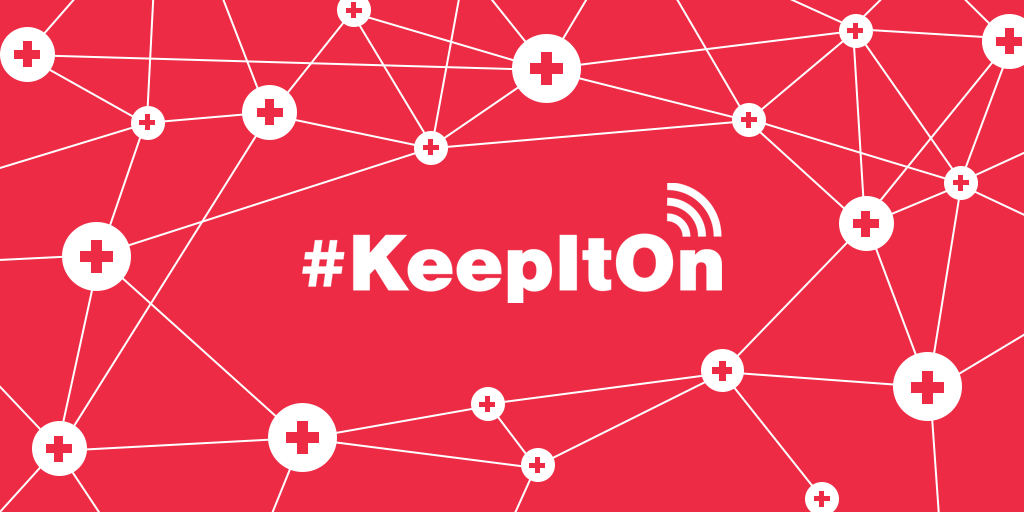April 24, 2020
We, the undersigned organizations, write to reiterate our call on the government of India to lift the restriction on 4G high-speed internet access in the Jammu and Kashmir region as a step toward the containment of the COVID-19 virus and related healthcare needs.
In March 2020, the Jammu and Kashmir administration — currently directly reporting to the Indian Union Government — resorted to slowing down internet speed to 2G. This was after ending a seven-month blanket internet shutdown in the two regions following a judgment on the matter by the Supreme Court in January.
In the wake of the COVID-19 outbreak, which continues to claim thousands of lives globally, access to information and the free flow of communications, including for the media, is more crucial than ever, especially given the novelty of the virus and lack of a vaccine. People are relying on the internet and digital communications platforms to access life-saving information provided by the World Health Organization (WHO) and other public health experts. Access to accurate information is indispensable in tackling the spread of COVID-19 and it must, therefore, be the priority of every government. The internet is also playing a crucial role during the pandemic in allowing people to carry out important activities while they avoid public spaces since gathering facilitates the spread of the virus. Access to the internet is also essential for human rights defenders, activists, and journalists to carry out their work of bringing important information to the doorsteps of the people. Internet access has also made it possible for many to work from home, mitigating the significant economic harms triggered by the pandemic, while also providing meaning and continuity for people in their daily lives.
This is not the case in Jammu and Kashmir. The absence of 4G internet has particularly hindered the work of health professionals who are on the front lines combating this global pandemic. Doctors in Jammu and Kashmir are struggling to access important information, often waiting hours to download and access information such as guidelines for intensive care management of the virus and best practices recommended by the WHO. The restriction of high-speed internet access has also impeded the work of human rights defenders, journalists, and other actors working in the region.
At the same time, residents cannot easily access updates about the precautionary measures recommended by health professionals, governments, and the WHO, and often they are unable to check on the health of their loved ones and friends. Research by experts in India has shown that the existing restrictions on 4G connectivity make video conferencing — currently a critical lifeline throughout India and across the globe — practically impossible to access and use effectively.
Denying citizens access to essential information about the COVID-19 virus is a flagrant violation of their right to access information, puts the lives of the residents of Jammu and Kashmir at risk, and threatens public health in India and beyond. Judicial authorities in India have already ordered the government to explain its position and rationale behind this decision impacting fundamental rights during the pandemic. A petition by the Foundation for Media Professionals is currently pending in India’s Supreme Court while the High Court of Jammu and Kashmir initiated legal proceedings after noting the impact of the restriction on high-speed internet connectivity on students in the region.
The renewed judicial scrutiny of these unfortunate decisions to restrict internet access during this time of pandemic provides a critical opportunity for the Indian government to reconsider and review its approach.
We, the undersigned organizations, belonging to the global #KeepItOn coalition, reprise our urgent appeal to the government of India to:
- Immediately restore high-speed 4G internet access to full capacity to enable people in Jammu and Kashmir to be well informed and access crucial information about the virus; to ensure journalists, human rights defenders and activists have the resources to do their work;
- Lift all restrictions on the internet and all telecommunication tools unconditionally and facilitate access to a free, open, and secure internet;
- Explore the innovative ways in which internet access can contribute to containing the spread of COVID-19 as well as the opportunities the internet provides in empowering people and boosting development in the affected regions and nationwide;
- Work in collaboration with internet service providers and telecommunication companies in the country to ensure a free, open, and secure internet in Jammu and Kashmir and the rest of India; and
- Implement the Supreme Court of India’s recommendation to review the text and functioning of the Telecom Network Suspension Rules of 2017.
Signed,
Access Now
ADISI-CAMEROUN
Africa Open Data and Internet Research Foundation (AODIRF)
AfroLeadership
Americans for Democracy & Human Rights in Bahrain
Association Francophone pour les Droits de l’Homme
Association for Progressive Communications (APC)
Bloggers Association of Kenya (BAKE)
Bloggers of Zambia
Blueprint for Free Speech
Cairo Institute for Human Rights Studies (CIHRS)
Campaign for Human Rights and Development International (CHRDI)
Center for Multilateral Affairs (CfMA)
Chandian civil society organisation PACT
Collaboration on ICT Policy for East and Southern Africa (CIPESA)
Committee to Protect Journalists
Democratic Transition and Human Rights support center (DAAM)
Derechos Digitales
Digital Defenders Partnership (DDP)
Freedom House
Free Expression Myanmar (FEM)
Front Line Defenders
Global Forum for Media Development (GFMD)
Human Rights Watch
ImpACT International for Human Rights Policies
International Federation for Human Rights (FIDH)
Internet without borders
Jamii Forums, Tanzania
Kenya ICT Action Network (KICTANet)
League of African Bloggers and Cyber Activists for Democracy – Africtivistes
Media Foundation for West Africa (MFWA)
Media Institute for Southern Africa-Zimbabwe (MISA Zimbabwe)
Media Rights Agenda (MRA)
Open Net Africa
Open Net Korea
Paradigm Initiative
PEN America
Penplusbytes
Right 2 Know Campaign South Africa
Unwanted Witness Uganda
WITNESS
YODET
